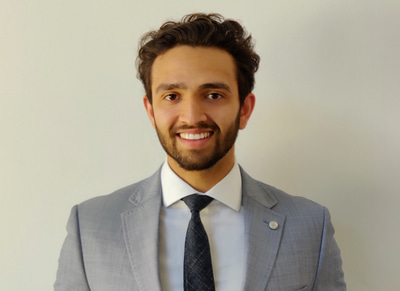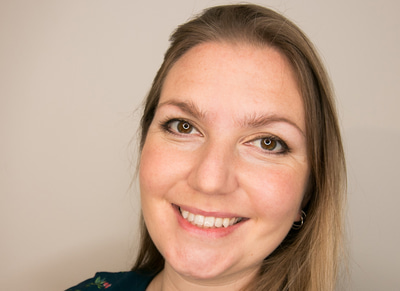- OT
- Life in practice
- Practitioner stories
- Locum life: the essential kit
Locum life: the essential kit
Locum optometrists reveal what is in their kit bag – from clinical essentials to the book or snack that gives their wellbeing a boost
5 min read 1

Getty/FreshSplash
27 January 2022
For many, a work bag can become a blackhole where mints, snack wrappers and coins float in limbo.
Reach in and what will you pull out? The pen you were looking for or a receipt from three years ago? It’s anyone’s guess.
However, for locum optometrists having an organised and well-stocked kit bag is part of the job.
What a locum brings to work has been honed and refined as they work out which items will best support their working day.
OT asked four locum optometrists for a peek inside their bags – and how what they bring to work has changed following the pandemic.
Gautam Passi

Gautam Passi
Packing post-pandemic: Since the pandemic my kit hasn’t changed other than having a few face masks so I can walk into the practice in my personal protective equipment and sanitise my hands.
Tips for new locums: I use a travel bag to hold my equipment: it's small enough to fit in my backpack and strong enough to protect my equipment. I would advise any newly qualified optometrist to use this simple approach.
My wellbeing essentials: I make sure to take some lunch, a good book – I’m currently reading Good Vibes, Good Life – a phone charger, my wallet and a copy of OT.
Shamina Asif

Shamina Asif
When I locum, I sometimes come across other locums that are looking for the practice trial frame as they do not own one. I personally find this shocking, as some practices have phoropters so their trial frame may not be easy to locate, or they have a slightly older design trial frame.
You need to have your own so that you are comfortable carrying out a refraction on children or those in a wheelchair. One day’s salary for a trial frame that will last you a lifetime is worth the investment.
Even though many practices have autorefractors, it is vital to have your retinoscope to assess children or those that may have opacities that may not give a reading on the auto-refractor.
With the ophthalmoscope, I have to be honest I have not had to use it as much as I would have used it pre-pandemic but it is important to assess those patients who cannot reach the slit lamp for a Volk assessment. I have a range of Volk lenses, digital widefield to assess the peripheral for flashes and floaters, as well as superfield as a good all-rounder.
I carry phenylephrine 2.5% drops in case I have to manage a flashes and floaters case; I am not happy at all assessing a potential retinal detachment case only using tropicamide 1%. Because there are many practices that do not stock phenylephrine, I carry my own.
Tips for new locums: Bring your own cover stick and budgie stick along with pen torch for effective binocular vision assessments It is useful to have a confrontation stick to assess those that cannot do fields. Thanks to the confrontation stick I managed to pick up a tumour in a patient with a wheelchair who couldn’t reach the fields machine.
My wellbeing essentials: My prayer mat – I am lucky that in most places I have locumed I have been given time and space to pray when I need to. It is a great to just have some time to unwind on a busy testing day.
Hassnain Safdar

Hassnain Safdar
Packing post-pandemic: I’d have to say my Antifog cloth to clean my volk lens when examining patients has been a lifesaver.
Tips for new locums: Make sure you have a big enough bag. My briefcase has lots of compartments which helps when I unpack and also at the end of the day, as I know if I’ve put all of my equipment back in there. It’s really easy to leave something behind – there’s nothing worse than to forget your Volk lens or ret at a practice an hour or so away. Whatever it is, just make sure you have a system that works for you.
My wellbeing essentials: What better way to break your day up than by having a tasty guilt-free skinny mint choc chip or chocolate orange nougat bar with a nice warm brew – trust me that moment is heavenly.
Rebecca Rushton

Rebecca Rushton
Packing post-pandemic: Following the pandemic I have No Fog wipes and a spare disposable mask.
Tips for new locums: My bag has evolved over time, and now I have a large pencil case for the most important things and a larger make up bag for extra bits, which I tend to leave at home. Carrying as little as possible means there's less to lose.
My wellbeing essentials: I always have an e-book for reading on the train or at lunch times.
Advertisement
More Practitioner stories articles
-
Returning to locuming after two decades away
-
The balance: practitioners share how they maintain a healthy work-life balance
-
How to feel less stressed: practitioners share their go-to destress hacks
-
“The tumour would’ve continued to grow, I would’ve continued to be unwell and would’ve been left with lifechanging disabilities”


Comments (1)
You must be logged in to join the discussion. Log in
Senna fan28 January 2022
Great idea wrt phenylephrine 2.5%, but I thought this needs to be stored in a fridge, do you use a cool bag?
Report Like 282